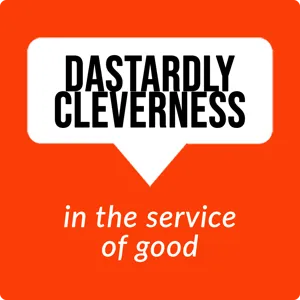What's the Real News About Election '24? With Mike Madrid & Zach Friend

If you wanted to, you could consume nothing but presidential campaign coverage all day every day. But how much of it would leave you feeling better informed about casting what may be the most important vote of your life? Not better informed about the campaign as a sporting event, with all the expert play-by-play, color commentary, and stats. But better informed about questions that may not have easy, satisfying, or entertaining answers? Better prepared to think, and not just react?
On this episode of Dastardly Cleverness, we go hunting for that kind of election coverage, find a little, and try to supply some ourselves. I'm joined by two people I can always count on to leave me better informed.
Mike Madrid is a co-founder of the Lincoln Project and one of the country’s top political consultants, with special expertise on Latino voting trends. Mike previously served as the press secretary for the California Assembly Republican leader, as the political director for the California Republican Party, and as a senior adviser to both Republicans and Democrats. He’s the author of the upcoming book The Latino Century.
And Zach Friend has worked for multiple presidential campaigns, the White House Council of Economic Advisers, the U.S. Senate, and the U.S. House of Representatives, and has served for multiple terms as an elected official in Santa Cruz County, California. Zach is the author of the book On Message.
-- Spencer Critchley






